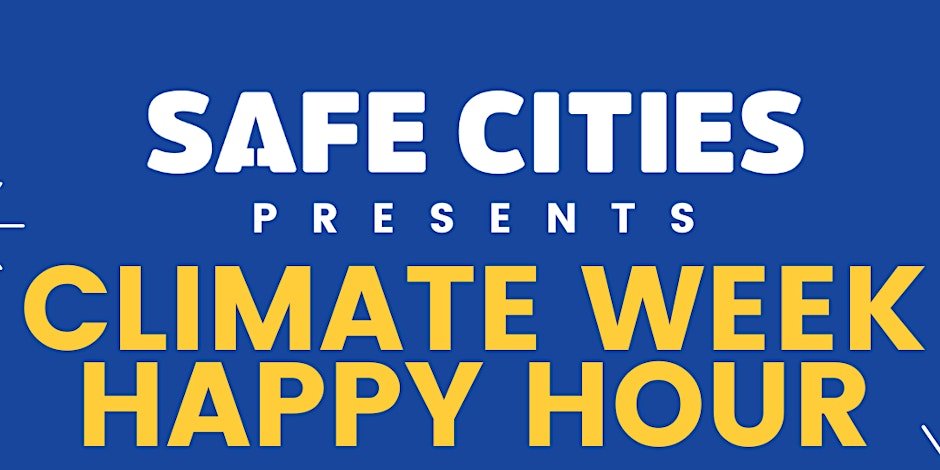Safe Cities Presents: Climate Week Happy Hour
Come join us for a fun evening at The Half Pint as we celebrate how cities are halting the spread of fossil fuels over drinks and snacks. RSVP now to secure your spot. Space is limited.
You'll hear from Safe Cities, Neighbors United, and the Fossil Fuel Non-Proliferation Treaty teams about their campaigns to drive cities forward in the clean energy transition and preventing fossil fuel expansion. This brief panel presentation will leave you with key learnings you can apply to your work right away!
Speakers:
SAFE Cities will speak to the growing momentum behind, and challenges facing, the building electrification movement in the wake of the Berkeley decision at the beginning of this year. They will also touch on the importance of local action and how individual city level policies can lead to regional, and even state/province-wide shifts in addressing the threats fossil fuels pose to climate and health. SAFE Cities works with local activists, elected officials, and staff across North America to pass policies that phase out fossil fuels and fast track clean energy.
Neighbors United Executive Director, Montana Burgess, will share lessons learned from her team's suburban deep canvassing campaign for all-electric new buildings, as well as emerging lessons from deep canvassing partnerships in midwest states to build support from small town residents for clean energy projects. Montana's team pioneered deep canvassing in climate, energy, and biodiversity in small, rural and suburban communities with the guidance of New Conversation Initiative.
The Fossil Fuel Non-Proliferation Treaty North America campaigns lead, Rachel Ruback, will give a status update on this fast growing initiative to create a breakthrough on the just transition from fossil fuels through a justice-centered international coalition that bridges governments, civil society partners and thought-leaders. Rachel will outline why campaigns to secure endorsements at the subnational level are crucial to help kick start international negotiations, share case studies on how local action on the Treaty can lead to concrete policy changes, and provide strategies for how attendees can call on their own governments to endorse.
Venue is wheelchair accessible and located close to transit.
